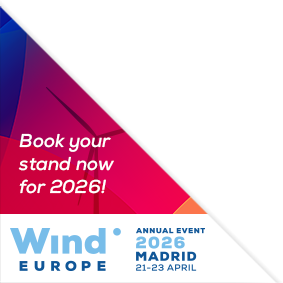Posters
Siblings:
ProceedingsProgrammeSpeakersPostersContent PartnersPowering the Future stageMarkets TheatreStudent programmeResearch & Innovation in actionProgramme Committee & abstracts reviewersPresenters’ dashboardCome meet the poster presenters to ask them questions and discuss their work
We would like to invite you to come and see the posters at our upcoming conference. The posters will showcase a diverse range of research topics, and will give delegates an opportunity to engage with the authors and learn more about their work. Whether you are a seasoned researcher or simply curious about the latest developments in your field, we believe that the posters will offer something of interest to everyone. So please join us at the conference and take advantage of this opportunity to learn and engage with your peers in industry and the academic community.
On 9 April at 17:15, we’ll also hold the main poster session and distinguish the 7 best posters of this year’s edition with our traditional Poster Awards Ceremony. Join us at the poster area to cheer and meet the laureates, and enjoy some drinks with all poster presenters!
We look forward to seeing you there!

PO091: Families of energy hubs in the Netherlands
Freek Diepeveen, Sector Lead Energy, Royal HaskoningDHV
Abstract
Energy Hubs in the Netherlands play a crucial role in the energy transition by reducing grid congestion and contributing to a sustainable decentralized energy system. They help the Netherlands achieve its CO2 targets and offer more strategic and local autonomy. However, the many definitions and forms make Energy Hubs complex. The study conducted for the Dutch Government, brings order to this complexity by categorizing Energy Hubs into four families: built environment, mobility, industrial areas, and cluster 6 companies (large energy consumers). For each family, the main technical-financial, organizational, governance, and legal building blocks are described. Building blocks such as storage, conversion, local renewable sources, and demand/supply management are often present in various combinations. In the short term (until 2030), the focus is on reducing grid congestion. An analysis shows that Energy Hubs can contribute up to 3.2 GW to alleviating peak loads on the electricity grid. However, specific data from grid operators are needed for a detailed analysis. In the Netherlands, nearly 1,200 promising Energy Hubs have been identified, spread across the four families. The study emphasizes the importance of balancing local flexibility and central control, with electricity playing a central role in the 2050 energy system. Energy Hubs optimize the use of local resources within the hub and surrounding area. Energy Hubs are particularly effective in service areas of national- and regional grid operators at an HV/MV substations. A regional approach can make the greatest contribution to balancing supply and demand. Both energy and environmental policies benefit from Energy Hubs by limiting energy transport and minimizing land use. Collaboration within Hubs can range from transactional to entrepreneurial cooperation, depending on ambition of involved parties. In the long term, the focus shifts from market control to area control, emphasizing climate neutrality and other themes such as circularity.



